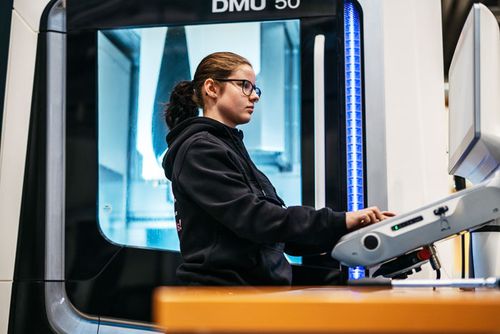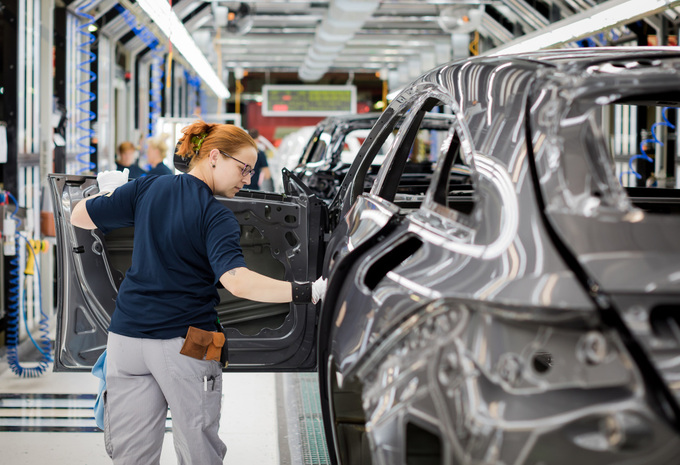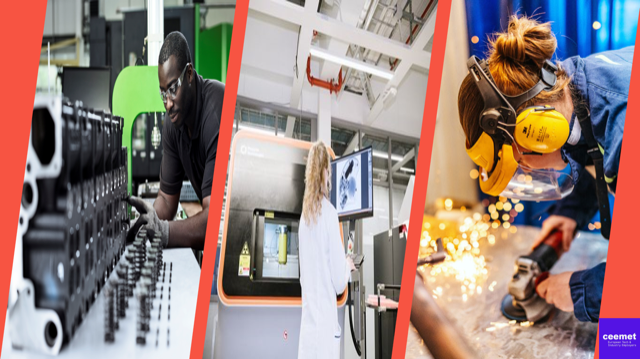Each Spring, Ceemet publishes its Chief Economists Report, which provides insights into the economic challenges faced by Europe’s MET industries in the social field.
In this report published on May 11th 2023, we see that despite the sharp drop in production during the corona-crisis, the MET industries have managed to keep the number of employees relatively stable. Our sector currently directly employs 17.1 million workers. Nevertheless, structural change within our industries is clearly reflected in the medium-term employment trends.
What will likely not be a surprise is that the production values in the MET industries have seen a challenging period recently. However they have now finally surpassed their 2019 peak. We have seen an increase of 11.8% in 2021 and 13.6% in 2022, following the decrease of 12% which occurred in 2020. Exports, which are the lifeblood of industry, have recently taken a hit with Ceemet’s external EU exports declining by 6% in the last decade. Despite this situation, R&D spend within our sector remains robust with our industries accounting for around 45% of the spend for the entire economy.
In order to illustrate the need for an industrial plan for Europe, Ceemet President Rainer Ludwig gave the example of the automotive industry saying that “For several decades, the European automotive sector has been one of the main pillars of the economy and has been part of the social fabric of our communities, supporting jobs and families across Europe. Nevertheless, in recent years the automotive industry has seen some structural challenges, for example in the form of electrification of the industry. Therefore, the automotive industries, together with the MET industries, need strong and coordinated EU-wide action to support our sectors”, explained the Ceemet President.
“An EU industrial plan is no longer a necessity, it’s an emergency! We have waited too long and been through too many discussions, now is the time for action”, he added.
There is no question that national measures and EU initiatives supporting companies in their green transition will stimulate investment in Europe. However policy-makers must do more to ensure the competitiveness of European companies at this extremely challenging time. It is imperative that the EU provides a regulatory environment which is conducive to the continuation, and crucially the development, of its industries. The EU and its Member States must accompany their industries in facing the current challenges and encourage innovative companies and start-ups as these companies are the industries of tomorrow, and will be a key driver in future EU competitiveness.
We must see better regulation in the single market
This year, Ceemet is very happy to celebrate, alongside the European institutions, the 30th anniversary of the EU Single Market. Having said that, we would also like to remind policy-makers that this modern wonder of EU integration cannot be taken for granted, as the four freedoms of the Single Market are not yet fully realised. It is therefore time to fully ensure labour mobility within our internal market, to provide the right framework conditions for investment and to definitely put an end to 'over-regulation'.
These are the actions which are needed if the EU wants to maintain its companies’ competitiveness and endeavour to facilitate their improved productivity. Ceemet is ready to work hand in hand with policy-makers to achieve these goals and find the right balance to ensure a better regulatory environment. However, similarly, policy-makers must trust their companies and their capacity to adapt and deliver for Europe.
For Rainer Ludwig, "Businesses turn challenges into opportunities and develop in territories which provide them with the right investment conditions. The EU must provide these conditions, thereby supporting companies, particularly our SMEs. Investment in R&D, the twin transition and innovation is vital to ensure the future of manufacturing is made in Europe”.
Our industries do not deny the need for regulation in certain areas. However, we must be cautious not to over regulate technical innovations, and ensure the consultation with all relevant stakeholders, in particular social partners. It is only with the trusted involvement of social partners that we can ensure these proposed regulations are fit for purpose.
Is the twin transition amplifying labour and skills shortages?
Many of the companies which make up the MET sector are at the forefront of innovation and have increased their use of green and digital technologies in recent years. However, what is not always understood is that the digital and green transitions simply take time to realise. This is due to several factors: including the lack of regulatory support and a chronic lack of skilled workers. Therefore, while these companies are innovating to become greener, it is counterproductive to impose regulations which hinder this aim. Furthermore, these rules are being placed on a sector that is currently facing massive challenges, both internally but also with massive external pressures.
There is no question that the transformation of work alongside the integration of technological tools and the emergence of green products have increased the skills gap. Consequently, the EU MET industries are facing a major skills shortage in addition to potential demographic challenges, both of which drive a labour shortage. In this context, it is crucial that all stakeholders, in particular training providers, research departments, companies and workers, work together to manage the green transition and ensure it is a success for all Europeans. All actors must come together to try to work out solutions and ensure the effective monitoring of skills needs, anticipation of change and retraining and further training of workers.
“Companies are very innovative when trying to attract workers to the MET sector. They engage the educational world offering a variety of tools, platforms and communication campaigns to recruit. They even provide programs to up-skill and re-skill workers. Despite all of these initiatives, the MET industries continue to suffer from a skills gap. All stakeholders must come together to find solutions to this perennial problem, before this skills gap turns into a chasm” warned Rainer Ludwig.
A rightly skilled and mobile workforce, alongside adequate investment within a fit for purpose regulatory environment is the only way to deliver a real re-industrialisation of Europe.
Content provided by Ceemet (European employers’ organisation representing the interests of the Metal, Engineering & Technology-based industries)



